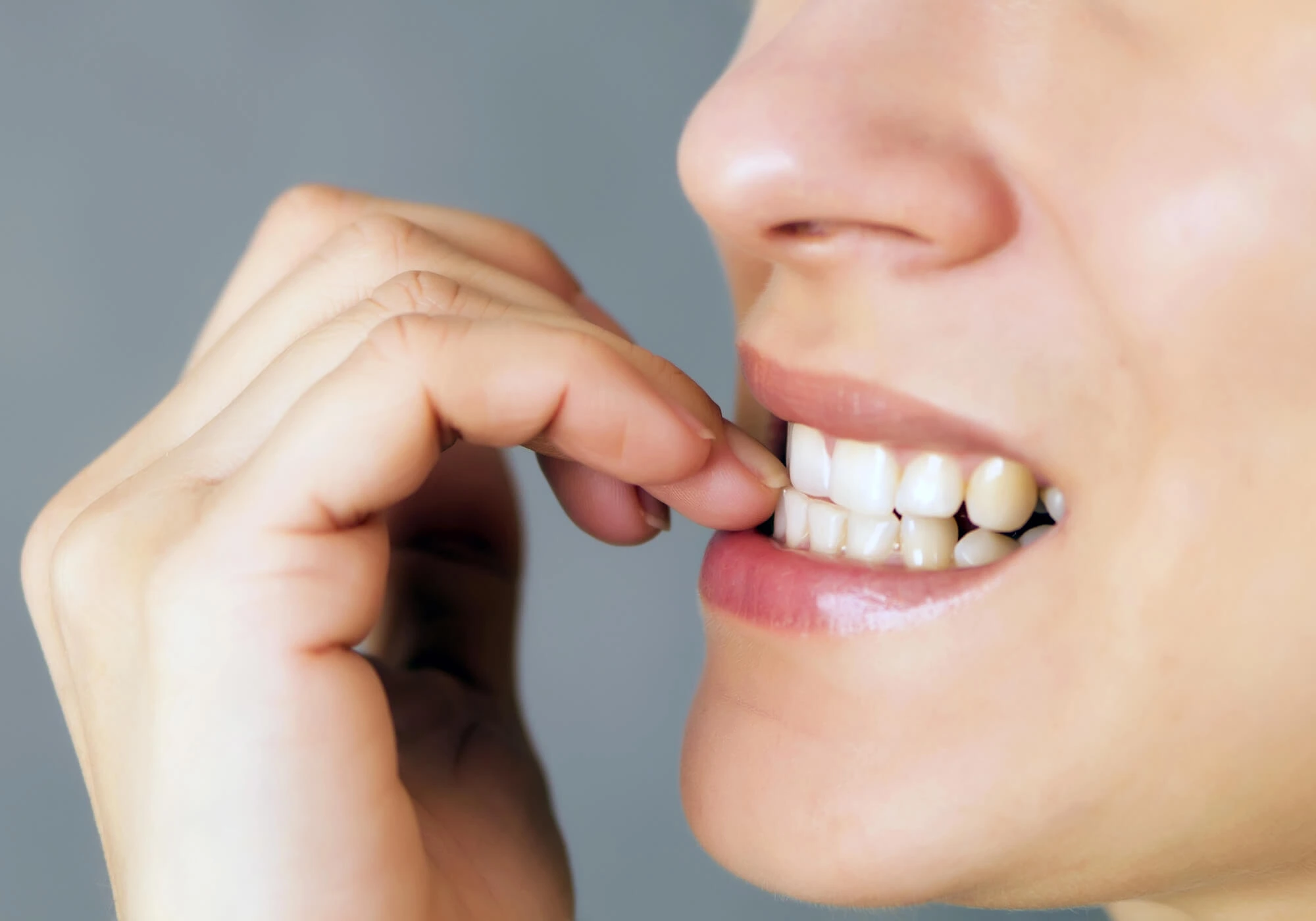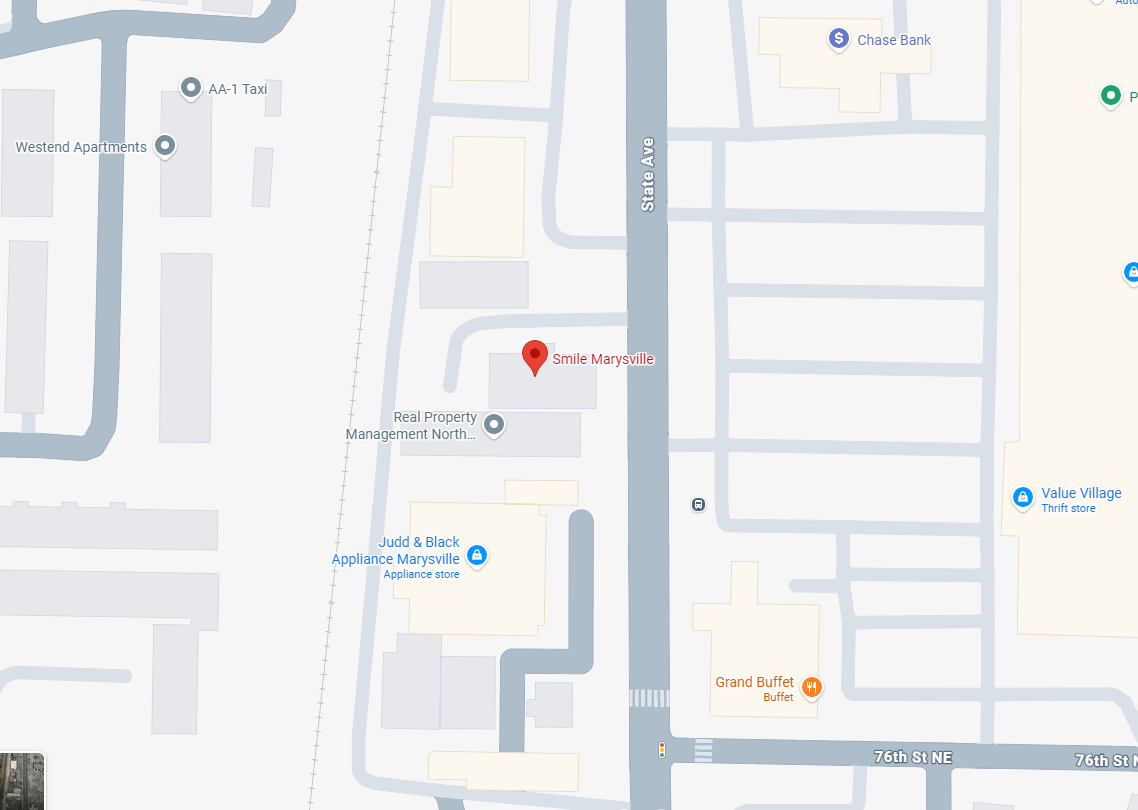If you’ve ever experienced jaw pain, clicking sounds, or difficulty opening your mouth, you might be dealing with TMD (temporomandibular joint disorder). This common condition affects the hinge that connects your jaw to your skull, and surprisingly, your daily habits could be making your symptoms worse without you even realizing it.
At Smile Marysville, our dental team regularly treats patients struggling with TMJ and TMD discomfort. Understanding which habits contribute to jaw tension is the first step toward lasting relief. Let’s explore some common routines that may be aggravating your TMD symptoms — and what you can do to stop them.
1. Teeth Grinding (Bruxism)
Grinding or clenching your teeth — often while sleeping or during stress — puts excessive pressure on your jaw joint. Over time, this habit can cause muscle fatigue, tooth wear, and chronic pain around your face, neck, or temples.
What to Do Instead:
Ask about a custom night guard from Smile Marysville dentist treatment. A night guard provides cushioning between your teeth, reduces stress on the TMJ, and protects your enamel from damage.
2. Poor Posture
Slouching or looking down at your phone for long periods (a condition often called “text neck”) can strain the muscles that support your jaw. Poor posture pulls your lower jaw forward, leading to misalignment and tension in the TMJ area.
Fix It:
Keep your screen at eye level, sit upright, and take regular breaks. Simple posture awareness can greatly reduce TMD-related discomfort.
3. Chewing Gum or Hard Foods
Constantly chewing gum, ice, or other hard items overstimulates your jaw muscles and joints. This repetitive motion can lead to inflammation and pain, especially if you already have TMD.
Better Choice:
Take a break from gum chewing and avoid foods that require excessive jaw movement like chewy candies, bagels, or tough meats. Choose softer, TMJ-friendly meals instead.
4. Nail Biting or Chewing on Objects
Many people habitually bite their nails, pen caps, or even their lips when stressed — but this habit forces your jaw into unnatural positions, worsening TMD tension.
Solution:
Replace these habits with stress-reducing alternatives like squeezing a stress ball, deep breathing, or sipping water to keep your mouth relaxed throughout the day.
5. Clenching Your Jaw During Stress
TMD symptoms often get worse when you’re anxious or under pressure. Stress can subconsciously cause you to clench your jaw and tighten facial muscles — leading to jaw stiffness and headaches.
What Helps:
Be mindful of jaw tension. Throughout the day, gently remind yourself to “relax your jaw” by keeping your teeth slightly apart and your lips closed. Incorporating relaxation techniques such as meditation, yoga, or short walks can help too.
6. Sleeping on Your Stomach or One Side
Certain sleep positions can put uneven pressure on your jaw and neck muscles, increasing morning pain or tightness. Sleeping on your stomach, for example, can strain the TMJ on one side.
Try This:
Sleep on your back with supportive pillows. If you prefer side sleeping, switch sides often and use a pillow that keeps your neck aligned with your spine.
7. Ignoring Early Warning Signs
Mild jaw popping, ear pressure, or occasional soreness may not seem serious at first — but ignoring these signs can allow TMD to progress into chronic pain or even joint damage.
When to See a Dentist:
If your jaw pain persists for more than a few days or interferes with chewing and talking, book an appointment with Smile Marysville. Our experienced dentists offer gentle TMD and TMJ treatments to relieve pain, correct bite issues, and restore jaw function.
How Smile Marysville Dentist Treatments Can Help
At Smile Marysville, our TMD treatment plans are personalized to target the root cause of your pain. We may recommend:
-
Custom night guards to prevent teeth grinding
-
Bite adjustments to improve alignment
-
Muscle relaxation techniques or physical therapy referrals
-
Botox therapy for TMJ relief in certain cases
-
Gentle jaw exercises and home care guidance
Our goal is to reduce strain on your temporomandibular joint and help you return to pain-free movement.
FAQs
What is TMD and how is it different from TMJ?
TMD (temporomandibular disorder) refers to conditions affecting the TMJ — the jaw joint that connects your lower jaw to your skull. TMJ is the joint itself, while TMD describes problems that cause pain or limited movement.
What daily habits can worsen TMD symptoms?
Common habits like teeth grinding, chewing gum, poor posture, nail biting, and jaw clenching can strain your jaw muscles and worsen TMD pain.
Can TMD go away on its own?
Mild cases may improve with rest or stress management, but persistent jaw pain should be evaluated by a dentist to prevent long-term joint damage.
How does Smile Marysville treat TMD?
Smile Marysville offers dentist treatments like custom night guards, bite adjustments, relaxation therapy, and jaw exercises to relieve TMJ and TMD discomfort.
When should I see a dentist for TMD?
If you experience jaw pain, clicking, headaches, or difficulty opening your mouth, schedule a consultation with Smile Marysville for early diagnosis and relief.
Final Thoughts
TMD symptoms often worsen because of small, everyday habits, like chewing gum, poor posture, or jaw clenching, that most people don’t even notice. By identifying and breaking these patterns early, you can significantly reduce pain and protect your jaw health.
At Smile Marysville, we specialize in dentist treatments that provide lasting relief for TMJ and TMD discomfort. Whether you’re seeking a custom night guard, bite therapy, or professional guidance, our team is here to help you find comfort and restore balance to your smile.
Schedule your TMD consultation today at Smile Marysville and take the first step toward a healthier, pain-free jaw.


